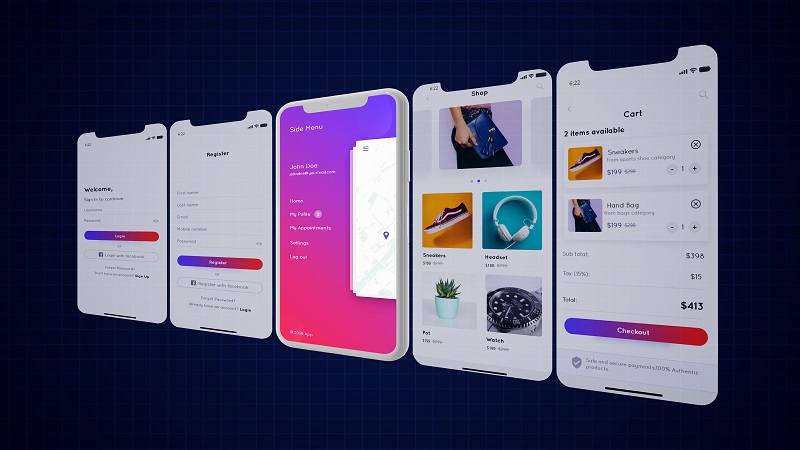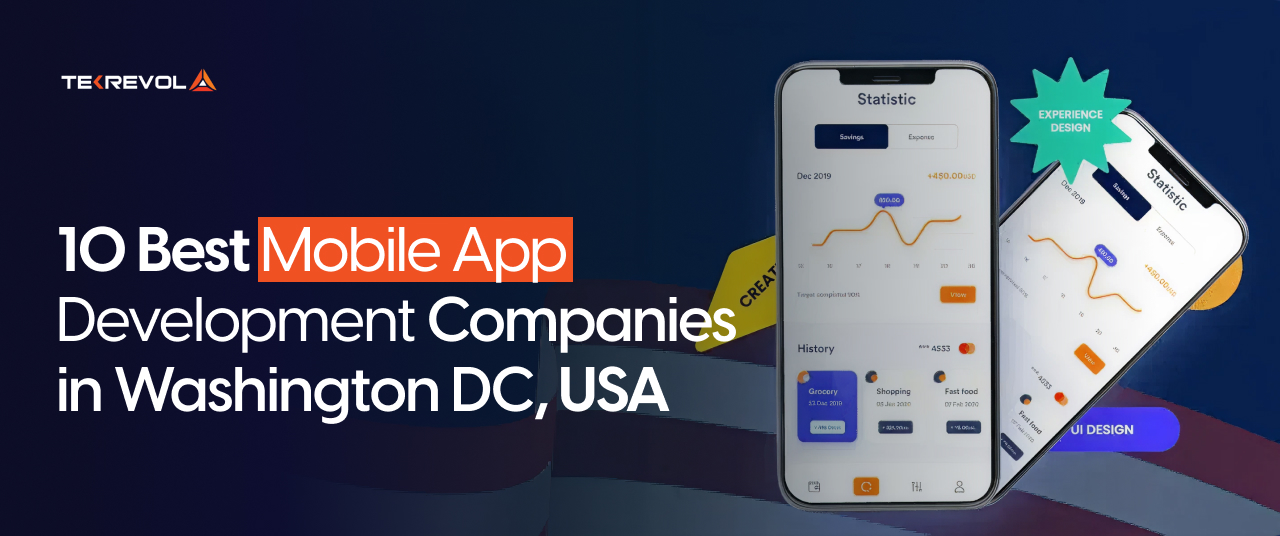Everything you do on your web browser is either via a web app or a website. Period.
The debate of website vs. web apps does not affect end users as long as they are able to find relevant content and book their favorite products and services.
But if you are an aspiring technopreneur and planning to launch a brand with a robust online presence and user experience, you must get the hang of technical nitty gritty involved in the development of these websites and web applications.
Websites vs. Web Applications – A Quick Overview
A website is a collection of web pages, has static content and allows minimal interaction with users. On the other hand, web app is a browser-based software program that has dynamic content and allows users to interact through profiles.

Both of these digital assets are built using HTML and other web technologies. While websites are important for establishing online presence and creating brand awareness, web apps boost user experience and strengthen brand loyalty because of advanced features and functions.
Here are 4 examples to further simplify the concept.
If you checked your mails in the office, you probably used Gmail, cloud-based web application. But if you read an article about digital innovation and employee culture on Forbes, you browsed a website and did not affect its textual and visual content at all.

Similarly, if you used Trello to manage your tasks online, you used a web application where you could only update task tickets after creating a one-time user profile. But if you checked the efficacy of a medical drug on Healthline.com, you browsed through the informational content on the website.
While this was a quick rundown, rest of this article covers the detailed commentary on the technical architecture, qualitative characteristics and pros and cons of websites and web apps.
What is a Website?
A website is a set of interlinked pages that run on a browser and allow partial interaction with the user via CTA buttons and internal links. It may contain one web page or many depending on the niche of the text and visual content.

Wikipedia, Craiglist, Google, Entrepreneur and BBC are all examples of trending websites.
Technical Architecture of Websites
There are several options for website development. The process starts with wireframing the UI and UX of websites. Once these designs are ready, developers use HTML for structuring websites and CSS for styling.
Development effort has almost reduced to half primarily because of content management systems like WordPress, website builders like Wix and Divi and other drag and drop tools which have made website development a DIY project for many non-techies too.
How much time does it take to develop a website?
As compared to web applications, websites require little development effort unless you are planning to launch a high magnitude custom web project.
Developers can get a simple, basic website up and running within a week. Though online stores that require integration with Shopify, Big Commerce and WooCommerce can take up to a month for development.
How much does it cost to develop a website?
Custom website development can cost you anywhere between $4,000 – $20,000 depending on the complexity of content, design, coding effort required and development hours.
Though WordPress website development is more economical and costs an average of $5,000 including domain and hosting.
Qualitative Characteristics of Websites
User Interaction
Websites allow partial interaction for users. Because websites (unless they are online gaming sites) have static content, users’ actions don’t affect the content and performance of websites from technical standpoint.
User Experience
Websites are mandatory ingredient for digital presence. They provide a limited user experience in forms of relevant, informative content. A website that offers high-end user experience is characterized to be:
- Secure and private with SSL certificates for data protection
- Mobile responsive, search engine optimized
- Easy to navigate, intuitive and minimalist in design
- Fast-loading and error-free
Why do businesses need a website?
Websites are primary to digital presence. If you have a brand, you have to have a website. Websites are quickest medium to tell your brand story.

While some visitors may use your website to order products (especially if it is an ecommerce store), most users, as an impulsive action, check websites to assess the credibility of a brand’s products or services, the address and contact information.
In addition to digital presence, brands also leverage websites to establish niche authority and thought leadership. They use their websites’ blog and video content sections to educate users and indirectly persuade them to buy from them.
For some businesses, websites act as standalone electronic branches and sales outlets. These websites allow online payment facilities and boost shopping experience for buyers. Websites serve as lead magnets, improve conversion and boost sales.
Websites also help brands, solopreneurs and even enterprise-level organizations showcase their portfolio and achievements. An aspiring technopreneur who plans to invest in app development will definitely go to their favorite Android agency’s website to check their previous projects, testimonials and case studies.
And with growth marketing progressing exponentially, brands use websites for organic and paid digital advertising. They compete for high rankings via SEO, collect email addresses via landing pages, run PPC ad campaigns on Google, improve social media following, and target their user segments via static content.
What is A Web Application?
A web app is a software program that runs on a browser and has dynamic pages. It allows full interaction via user profiles and offers a high user experience.
Grammarly, Canva, Instagram and Pinterest are popular examples of web applications.
Web applications have all the functionalities and features of a standard mobile app. Having a web app for your business allows you to reach a wider chunk of audience.
From experience standpoint, users are not required to install these web apps on their mobile phones since they are easily accessible via browsers on multiple digital devices.
Web applications are advanced, retain user data and have to be more secure and private than basic websites.
Technical Architecture of Web Applications
Most web applications now are cloud hosted. In fact, it is a quality of all great web applications. If you are creating a business web application, ensure it is hosted on cloud services like Google Cloud or Azure.
Web applications can be built using development frameworks like React Native and Flutter. In addition to these, some developers also use popular back-end coding frameworks like Django, Rails and Laravel.
How long does it take to develop a web application?
A web application requires dedicated development effort. It needs dedicated coding (in case you are developing a web app from scratch) or transformation on cross platforms (in case you already have a native mobile application).
Frameworks like React Native and Flutter have simplified the development process for web as well as mobile applications and so they can be completed in an average of 6 months.
How much it cost to develop a web application?
Web app features and performance requirements directly affect the development time.
Web applications are investments. Developing a SaaS-based web app can cost anywhere between $30,000 – $100,000 depending on the complexity of features and functionality of the application.
Qualitative Characteristics of Web Apps
User Interaction
Web applications allow major interaction for users. Users’ actions do affect the web apps’ content and performance.
Or, we can also say that the performance of specific features in a web app depends on the actions of users. They can create user profiles, add important information, perform specific actions like editing documents, saving digital assets for later use etc.
Take example of Grammarly. It has browser extensions as well as web application. Users willing to edit their documents for grammar, tone, vocabulary and style can choose to install desktop versions or upload their documents into the web interface.
After making necessary edits, they can instantly download the new corrected version or choose to use the same documents later.
User Experience
Web applications boost the user experience to a high extent. Depending on the brand and the type of business, users depend on web applications and prefer them because of higher security and privacy of data.
Therefore, a web application has to have high security and data privacy protocols.
Though the data privacy issues can be mitigated to a higher extent in web apps because of their roots in cloud platforms, web app owners and businesses should dedicate time and resources to monitor the data retention of applications.
That’s important because users trust web applications with their personal information, contact ids and payment details. A minor data leak or vulnerability to a hacking attempt can result in financial damages and reputation loss.
Another quality of a great web app includes the speed and performance. Even if your web application is a high-magnitude project, it should load speedily on all popular browsers even with limited connectivity.
For a high-end on-screen user experience, a web application has to have:
- Easy navigation
- Least number of clicks to perform the desired action
- Clutter-free screen environment
- Drag and drop options to perform tasks
- Balanced branding and neutral colors
- Synchronization of graphics and buttons with psychological cues
Why do businesses need a web application?
Brands need web applications to acquire a wider chunk of audience and provide a platform-independent user experience to buyers. No matter where in the world your users are, you can choose to stay connected to them 24*7 with a web application.
If your brand already has a native mobile application, there is no better time than now to get a web app too. That’s because web app developers now use frameworks and technology stacks that allow them to create web apps from the same, single code-base that was used in the native development.
In addition to consumer-side benefits, web applications serve several entrepreneurial benefits too. Businesses and managers can integrate data collection and monitoring tools and generate custom reports to understand how different app users interact with their content, and product listings.
It is not an overstatement that web applications offer a variety of business advantages. They make customer engagement, representation, acquisition and technical development convenient and economical.
Websites vs. Web Apps Side By Side Comparison
| Website | Web Applications |
| Content | |
| Static | Dynamic |
| User Interaction | |
| Minimal Interaction | High Interaction |
| User Experience | |
| Navigation, intuitiveness, design consistency, contact information and important CTAs | Guest signup features, save work for later, upload to social media platforms, monitor screentime |
| Technology Stack | |
| HTML, CSS, and PHP | React Native, Flutter, Django, Rails, Laravel |
| Development Time | |
|
|
| Development Cost | |
| $4,000 – $30,000 | $30,000 – $100,000 |
| Development Effort | |
| Low- to mid-level development effort | Mid-level to high-level development effort |
| Purposes | |
| Used for branding, educating potential buyers and generating leads | Used for engaging customers and boosting sales |
Wrapping Up the Website vs. Web Applications Debate…
Websites and web applications have their own importance for businesses.
According to Tekrevol’s business analysts, websites are primary for branding, while web applications are integral for delivery of business value. When a business is growing, it can’t really replace one for the other. Both of these digital assets are your gateway to digital transformation – one helps you launch, the other helps you scale. The first forwards your message and the other helps you with operational excellence.
So, at the end of the business day, websites and web applications both help small to large-scale organizations gain competitive advantage.
Want to position your business as a ‘modern’ brand in the business ecosystem? Tekrevol has a team of technical and strategy experts who can turn your business ambitions into reality, get your web app up and running and help you disrupt your industrial domain the way you envision.
- Want a website or a web app for your business?











